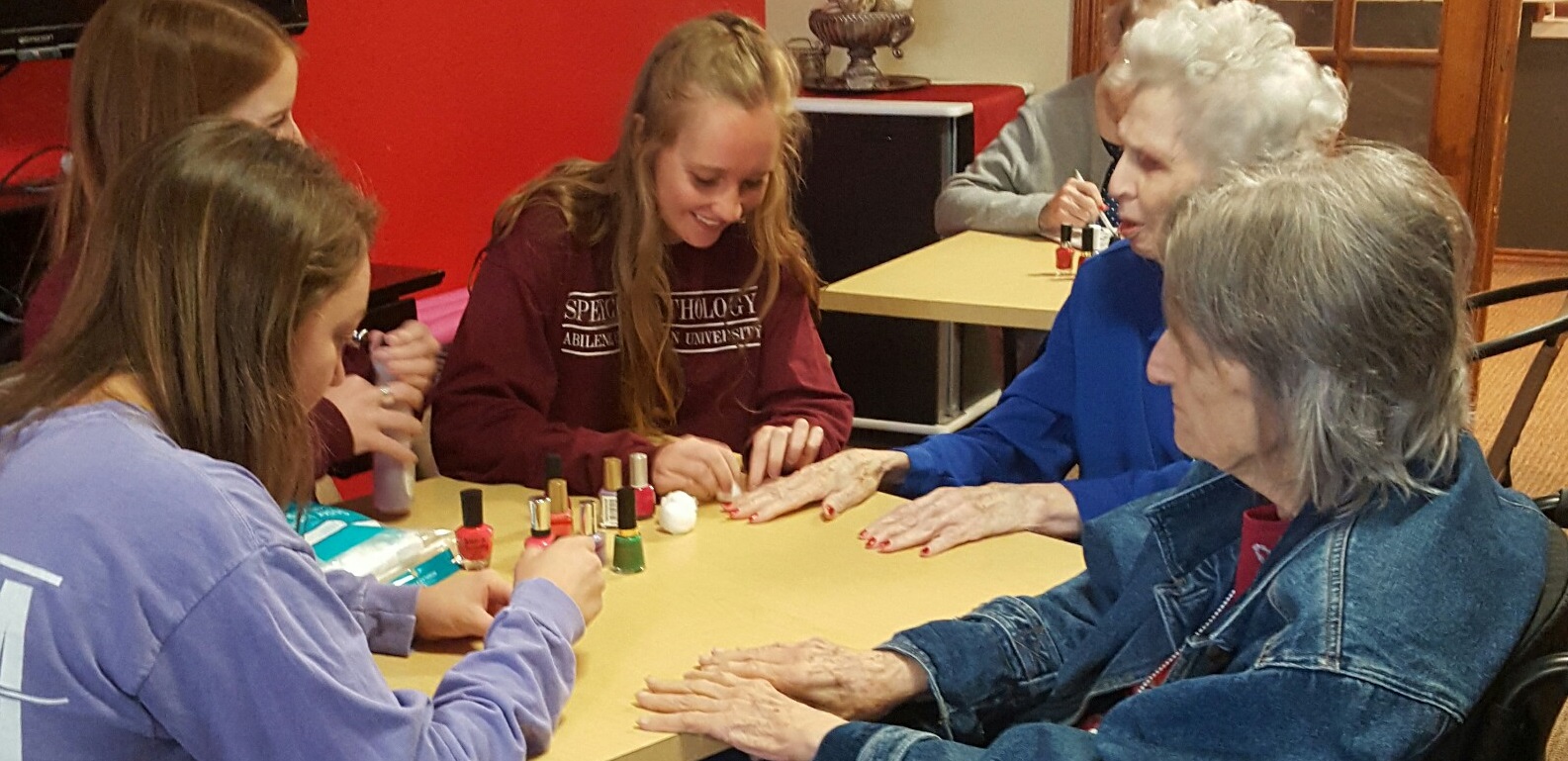
Inter-generational experiences has become a sight that is not commonly seen. This is partly due to how unfamiliar this idea is, especially to those in the younger generations. If you have not been exposed to spending time with our older population, interacting with them could seem like a scary or uncomfortable experience. Before an interaction, there are a few tips you can keep in mind in order to create a positive experience for both you and the older adult involved.
These include:
1. Using Proper Form of Address
- Avoid using familiar terms, like “dear” or “hun”. These can tend to sound patronizing. It is best to use “Mr.”, “Mrs.”, “Ms.” unless told otherwise.
2. Try Not to Rush
- Sometimes older adults have trouble with a bunch of information at once, or “rapid-fire” questioning. If you speak at a slower pace, you give them more time to process what is being said or asked. (However, going too slow could come across as condescending. In addition, going too slow may confuse the listener by how distorted and unnatural your speech becomes).
3. Avoid Interrupting
- It can be easy to become impatient, especially if you are a naturally fast-paced person. However, just as it is important to not rush a conversation, you should avoid interrupting at all costs. By doing this, it can appear as if you are devaluing what they have to say, even if that is not your intention.
4. Use Active Listening Skills
- Maintain eye contact. Respond to what is being said by the other party. In other words, show interest. Do not act as if the conversation is an inconvenience to you or it is something you feel obligated to do. People of all ages want intentional conversations, and the older population is no exception.
5. Demonstrate Empathy
- Watch for opportunities to respond to the older adult’s emotions. This ties into using active listening; doing so could make them feel heard and understood.
6. Be Careful About Wording
- Some words may have different meanings to older adults than they do to you. Just because certain phrases may appear perfectly fine to you and your peers in this generation, be mindful that those same words and phrases may mean something different to older generations.
7. Be Open Minded
- It is best to come in with an open-mind. There are many stereotypes about the older adults in our society, and most of them are negative. However, these are just stereotypes. Every person is different, and you are not going to find an individual who fits every single stereotype. Do not go into a conversation assuming that it is going to go a certain way.
By following this simple advice, you could minimize the awkwardness and create a pleasant inter-generational relationship for everyone involved.
